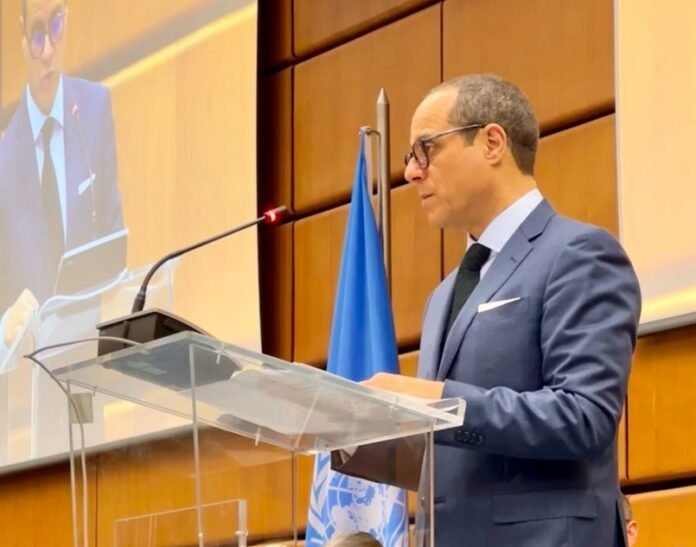Introduction to the International Day Against Drug Abuse and Illicit Trafficking
The International Day Against Drug Abuse and Illicit Trafficking, observed on June 26, stands as a global initiative dedicated to raising awareness about the significant challenges posed by drug abuse and illicit trafficking. Established by the United Nations General Assembly in 1987, this day emphasizes the importance of a cohesive international response to combat the multifaceted issues related to drug abuse and illegal drug trade. The annual commemoration serves as a clarion call to governments, organizations, and individuals worldwide to engage in concerted efforts aimed at reducing the prevalence of drug-related problems.
Historically, the observance of this day has been instrumental in galvanizing public support and generating discourse on effective strategies for drug control. By fostering a culture of awareness and education, the International Day Against Drug Abuse and Illicit Trafficking aims to mitigate the social, economic, and health-related impacts of drug abuse. The significance of this day extends beyond mere reflection; it encourages proactive measures, policy formulation, and community participation in the fight against drug-related vices.
Central to these international endeavors is the International Narcotics Control Board (INCB), an independent and quasi-judicial body established by the Single Convention on Narcotic Drugs of 1961. The INCB plays a pivotal role in monitoring and supporting the implementation of United Nations drug control conventions. As the guardian of international drug control treaties, the INCB ensures that countries adhere to their commitments in restricting the availability of narcotic drugs and psychotropic substances to medical and scientific purposes, while preventing their diversion into illicit channels.
The INCB’s efforts are critical in maintaining a balanced approach to drug control, which encompasses the promotion of public health and the protection of human rights. By issuing guidelines, conducting assessments, and facilitating international cooperation, the INCB significantly contributes to the global mission of eliminating drug abuse and illicit trafficking. The observance of the International Day Against Drug Abuse and Illicit Trafficking underscores the collective responsibility to address these pervasive issues and reinforces the INCB’s commitment to fostering a drug-free world.
The Current State of Drug Abuse and Prevention Efforts
As the world observes the International Day Against Drug Abuse and Illicit Trafficking in 2024, it is essential to reflect on the current state of drug abuse and the concerted efforts being made to combat this pervasive issue. According to recent data, substance use disorders continue to pose significant challenges globally, with millions of individuals affected. The devastating impacts of drug abuse extend beyond the individual, affecting families and entire communities, leading to social, economic, and health repercussions.
Jallal Toufiq, President of the International Narcotics Control Board (INCB), highlights that drug abuse remains a critical public health challenge. The statistics are alarming, with an increase in both the prevalence of drug use and the variety of substances being abused. This trend underscores the pressing need for comprehensive and evidence-based prevention and treatment programs. Effective strategies must be tailored to address the specific needs of different populations, considering factors such as age, gender, and socioeconomic status.
One of the key goals in the global fight against drug abuse is achieving the Sustainable Development Goal (SDG) target 3.5. This target aims to strengthen the prevention and treatment of substance abuse, including narcotic drug abuse and harmful use of alcohol. Achieving this target requires a multi-faceted approach, encompassing robust public health policies, community engagement, and international cooperation. Evidence-based interventions, such as early education programs, community-based treatment services, and harm reduction initiatives, are crucial components of a successful strategy.
Despite the challenges, there have been notable advancements in the field of drug abuse prevention and treatment. Innovations in treatment modalities, increased access to healthcare services, and the implementation of harm reduction programs have shown promising results. However, persistent efforts and sustained commitment from all stakeholders are necessary to build on these successes and ensure a future free from the ravages of substance abuse.
INCB’s Recommendations for Addressing Drug Use Disorders
The International Narcotics Control Board (INCB) emphasizes the urgent need for governments and organizations to implement evidence-based prevention and treatment policies to combat drug use disorders effectively. Such policies should be grounded in scientific research and best practices, ensuring that interventions are both efficient and effective in reducing the prevalence of these disorders. Comprehensively addressing drug use disorders requires a multifaceted approach that encompasses prevention, treatment, rehabilitation, and social reintegration.
Respecting human rights is a cornerstone of the INCB’s recommendations. All interventions should be designed and implemented in ways that uphold the dignity and rights of individuals affected by drug use disorders. This includes ensuring that treatment programs are voluntary, non-discriminatory, and free from coercion or punitive measures. The INCB calls for strict adherence to international standards set by the United Nations Office on Drugs and Crime (UNODC) and the World Health Organization (WHO), which provide guidelines for the humane and effective treatment of drug use disorders.
Furthermore, the INCB stresses the importance of culturally appropriate and universally accessible services. Programs must be tailored to meet the specific needs of different populations, including vulnerable groups such as women, children, and marginalized communities. Ensuring accessibility involves not only geographical reach but also affordability and acceptability of services to those in need. This approach helps bridge the gap in service provision and ensures that no one is left behind in the fight against drug use disorders.
In addition, the INCB highlights the significant role of social media in broadening the reach of prevention campaigns. Social media platforms offer an unparalleled opportunity to disseminate information, raise awareness, and engage with the public on issues related to drug use prevention and treatment. By leveraging these digital tools, organizations can extend their outreach efforts, particularly to younger audiences who are more likely to be active on these platforms.
The Role of International Cooperation and Future Directions
International cooperation is paramount in addressing the multifaceted challenges of drug abuse and illicit trafficking. The complexity of these issues necessitates a coordinated global response to effectively dismantle drug production networks, curb trafficking routes, and mitigate the misuse of narcotic substances. Comprehensive knowledge networks are essential in this endeavor, as they provide the critical data and insights needed to address both the supply and demand aspects of the drug problem. These networks facilitate the sharing of intelligence on drug production and trafficking activities while also promoting best practices in prevention, treatment, and rehabilitation.
The International Narcotics Control Board (INCB) remains steadfast in its commitment to supporting member states in the implementation of international drug control conventions. By ensuring adherence to these conventions, the INCB plays a crucial role in maintaining the balance between the legitimate medical use of narcotics and the prevention of their misuse. This dual focus is vital for safeguarding public health and upholding the highest attainable standard of health for all individuals. The INCB’s efforts are complemented by capacity-building initiatives aimed at enhancing the capabilities of national authorities to monitor and regulate drug-related activities effectively.
Achieving the objective of a drug-free world requires a collective effort from governments, international organizations, and civil society. Governments must strengthen their legal frameworks and enhance cross-border cooperation to tackle drug trafficking more effectively. International organizations, including the INCB, must continue to provide technical assistance and foster collaboration among member states. Civil society organizations play a critical role in raising awareness, advocating for evidence-based policies, and providing support to affected communities.
In the face of evolving drug trends and emerging challenges, it is imperative that the international community remains vigilant and adaptable. By fostering a spirit of collaboration and leveraging the strengths of all stakeholders, we can make significant strides towards a healthier, safer world free from the scourge of drug abuse and illicit trafficking.





